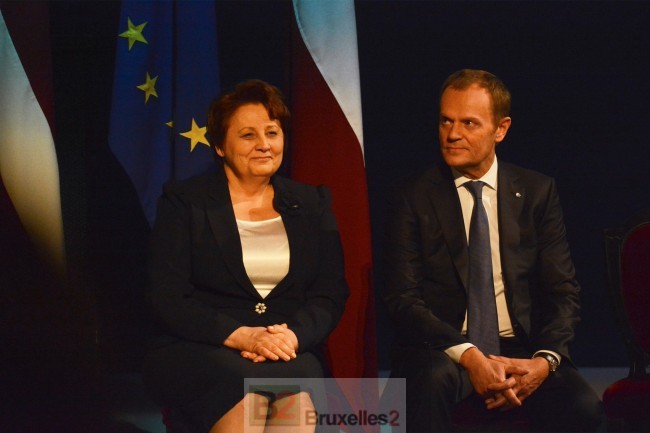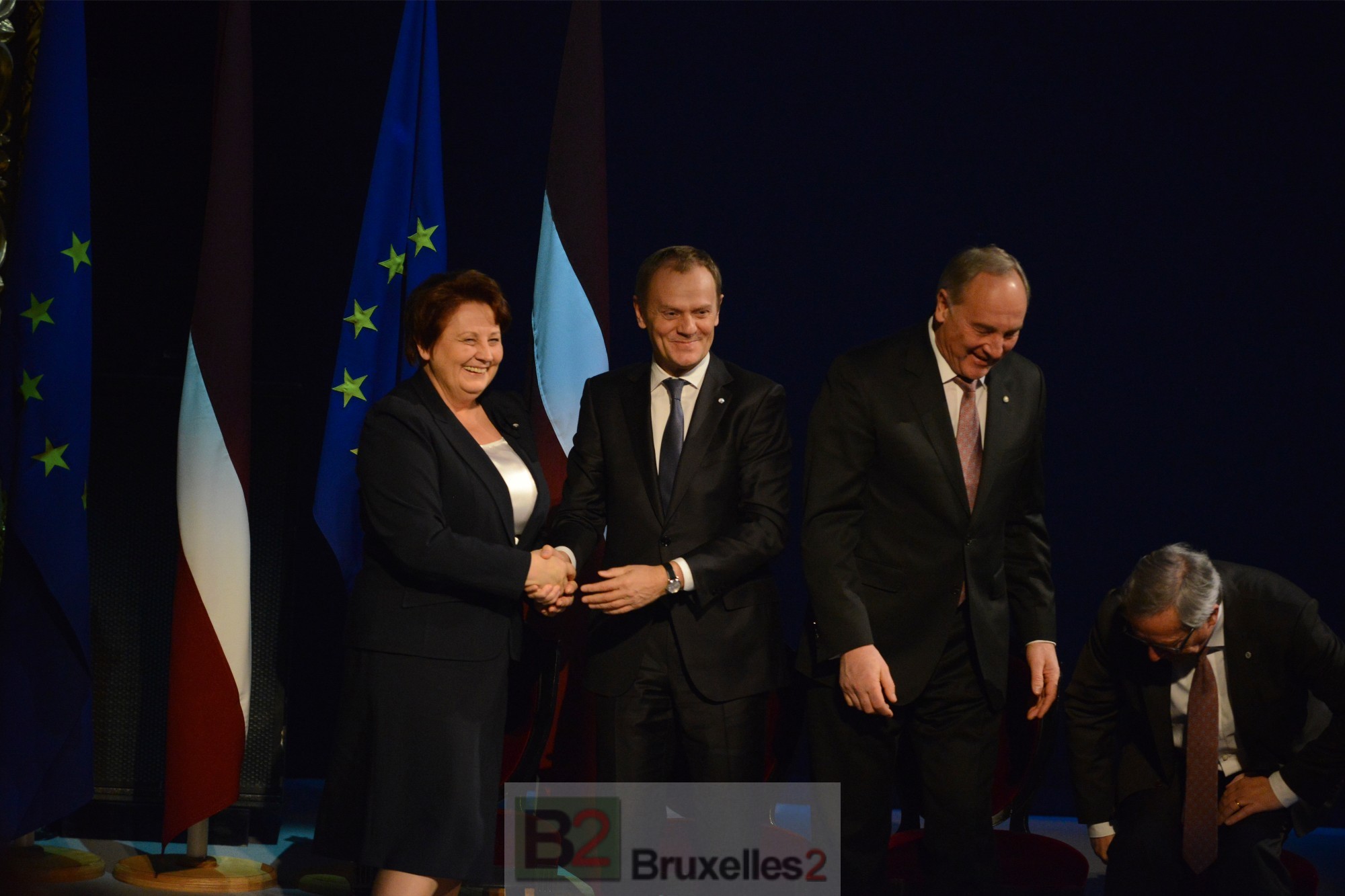Anti-terrorism. A European ignition delay (maj2)

(BRUSSELS2) If very quickly, after the bloody attack against Charlie Hebdo, the reactions of political solidarity, of condolence, followed one another coming from all over Europe, the global reaction of the European institutions leaves for the moment... speechless! Yet they were all together yesterday and today in Riga, on the occasion of the inauguration of the Latvian presidency of the European Union. No real decision has been made.
It is the first time that, during a major attack, on European soil or in a neighboring country (the USA), no large-scale meeting at European level is convened, with the presence of all the ministers or heads of state.
Strong responsiveness in 2001, 2004, 2005
I went back to my diary, it speaks for itself.
• Attacks in New York and Washington, September 11, 2001: an exceptional summit of Heads of State is convened for September 21 (ie 10 days later) by the Belgian Presidency of the EU.
• Attacks in Madrid, March 11, 2004: no need for an extraordinary meeting because a summit is already planned on the agenda for March 25, 2004 (14 days later) under the Irish Presidency of the EU. The agenda is disrupted. The European Union adopts a complete declaration (18 pages) on the fight against terrorism, together with an action plan.
• Attacks in London, July 7, 2005: an exceptional meeting of interior ministers is convened on July 13, 2005 in Brussels by the British Presidency of the EU.
Slow responsiveness in 2015
• Attack in Paris, 7 January 2015: no date has yet been set for the meeting of EU interior ministers. The international meeting on terrorism in Paris, Sunday (January 11), takes place in a totally informal setting (*), that of the G6, convened at the initiative of France (in conjunction with the European coordinator of the fight against terrorism) and the presence of the Ministers of the Interior of the main countries "concerned", but not of all (1). An expanded G6 of sorts.
Latvia, which has held the EU presidency since January 1, has indicated that the subject will be discussed on January 29 and 30 in Riga at the informal meeting (*) of interior and justice ministers. A presidency that does not really seem to have realized both the seriousness of the attack and the need to shake up the European agenda.
Ditto for the Pole Donald Tusk, who holds the permanent presidency of the European Council, the urgency does not seem really felt by the (new) president, the Pole, either to convene a meeting of heads of state and government before the 'hour. He simply specified today that he wanted " utiliser » the meeting, already scheduled on the calendar, on February 12 – in more than a month! - For " discuss the answer (at) bring to the challenges ". An informal meeting (*) today.
The European Commission promises, through its President Jean-Claude Juncker, to quickly present a review of the EU's anti-terrorist strategy. In fact, the European security agenda was already on the Commission's agenda for 2015. It is a question of advancing on the timetable. This "diary" should not be delivered immediately but in the coming months, a European source told me.
...Light. Very light !
Only, in fact, the High Representative of the EU for Foreign Affairs, Federica Mogherini, decided to shake up the timetable by indicating, very quickly (from Thursday), that the subject will be put on the agenda of the Ministers of Foreign Affairs , in 10 days, at the ordinary meeting of foreign ministers on January 19. But these ministers are not, the only ones to be concerned with the question of terrorism.
In fact, most European leaders will be present in Paris to participate in the "citizen" demonstration in tribute to the victims, at the invitation of François Hollande. Due to the number and importance of the personalities present (2), it is in fact a European mini-summit which will be organized (a meeting which must precede at the Elysée with the main personalities), on the initiative of France .
The symbolic and political necessity of a meeting
The interest of a rapid convening of a European meeting, has two objectives in this type of circumstances.
First of all, such a meeting makes it possible to mark the occasion, to show European unity, to symbolize solidarity, in the eyes of European citizens and the rest of the world. In a word, to demonstrate the existence of political Europe.
Secondly, a formal meeting makes it possible to make decisions, to initiate work. This may not be the place for final decisions. Nor is it about deciding anything in a hurry. It is rather the moment to initiate a broader decision-making process, by distributing the roles between the various European institutions and bodies, by asking for the preparation of certain measures or the acceleration of certain works, in this way we give the necessary political impetus . This process can be completed quickly (if measures are already on the table) in the following months (if the measures have to be written), or even years (if this blocks).
Speed in European matters has a virtue: to take advantage of the political opportunity to bring about decisions that would have no chance, except in times of crisis, of succeeding. Everyone knows that it is in critical moments that Europe decides!
(Update 11.1) Finally a special meeting of interior ministers on terrorism has been called for January 16 in Brussels. Officially “by the Latvian presidency”, in fact under pressure from other states (notably France and Germany).
(Nicolas Gros-Verheyde, on the return trip from Riga and in Paris)
(*) Which normally prevents any decision making or conclusions unlike a formal meeting.
(1) An enlarged G6
According to our information, at least 11 interior ministers from European countries will be present - Belgium (Jam Jambon), United Kingdom (Theresa May), Germany (Thomas de Maizière), Spain, Italy (Angelino Alfano), Netherlands, Poland, Denmark, Austria (Johanna Mikl-Leitner) and Latvia (Rihards Kozlovskis) — as well as US Justice Secretary Eric Holder, EU Home Affairs Commissioner (Dimitris Avramopoulos) and EU Anti-Corruption Coordinator -terrorism (Gilles de Kerchove).
(2) A European mini-summit
Almost all European heads of government (or state) will be present. I have already counted 21 (with François Hollande) who have announced their presence: David Cameron (United Kingdom), Angela Merkel (Germany), Matteo Renzi (Italy), Mariano Rajoy (Spain), Helle Thorning-Schmidt (Denmark ), Stefan Löfven (Sweden), Alex Stubb (Finland), Enda Kenny (Ireland) Charles Michel (Belgium), Mark Rutte (Netherlands), Xavier Bettel (Luxembourg), Antonis Samaras (Greece), Joseph Muscat (Malta) , Pedro Passos Coelho (Portugal), Boyko Borisov (Bulgaria), Zoran milanovic (Croatia), Viktor Orban (Hungary), Laimdota Straujuma (Latvia), Klaus Iohannis (Romania - president), Bohuslav Sobotka (Czech Rep.).
The representatives of the European institutions will be present: Jean-Claude Juncker (Commission), Donald Tusk (Council) and Martin Schulz (Parliament), Federica Mogherini (High Representative).
and a mini Normandy. Other foreign representatives will also be there, such as Ukrainian President Petro Poroshenko and the Russian Foreign Ministry, Sergej Lavrov, at the head of the Russian delegation. All that's missing is Putin. And we can have a meeting in mini-Normandy format before the time.
The Turkish Prime Minister, Ahmet Davutoglu, and the Moroccan Prime Minister Mezouar will also be there (if caricatures of Muhammad are not present on his route), the Israeli Netanyahu (who hesitated to come) and the Palestinian Abbas.
On Sunday I will join people of France and President @fhollande in the Unity Rally in Paris. We must say NO to terrorism and YES to freedom.
- Petro Poroshenko (@poroshenko) 9 Janvier 2015
